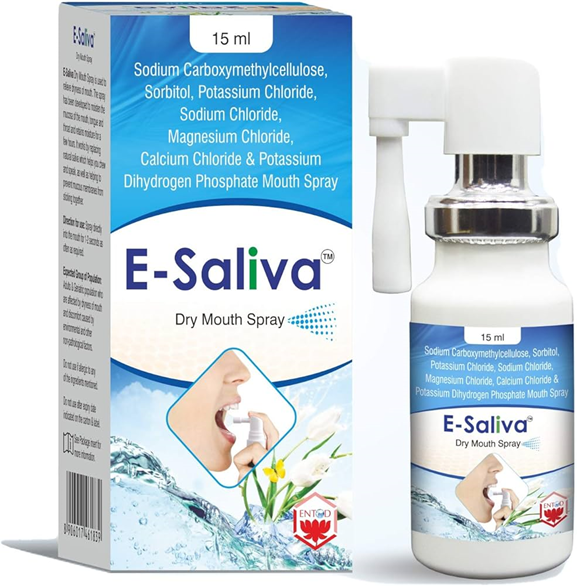A nurse is planning care for a client who is receiving radiation therapy to treat throat cancer and reports a change in the taste of food. Which of the following interventions should the nurse include in the plan of care?
Offer artificial saliva frequently.
Provide three large meals daily.
Add honey to sweeten fruit smoothies.
Heat food before serving.
The Correct Answer is A
Choice A: This is correct because offering artificial saliva frequently can help moisten the mouth and improve the taste of food. Radiation therapy can cause dry mouth and altered taste sensation.

Choice B: This is incorrect because providing three large meals daily can be overwhelming and unappetizing for the client. The nurse should provide small, frequent meals that are high in protein and calories.
Choice C: This is incorrect because adding honey to sweeten fruit smoothies can irritate the throat and increase the risk of infection. The nurse should avoid foods that are acidic, spicy, or sticky.
Choice D: This is incorrect because heating food before serving can enhance the unpleasant taste and smell of food. The nurse should serve food cold or at room temperature.
Nursing Test Bank
Naxlex Comprehensive Predictor Exams
Related Questions
Correct Answer is B
Explanation
Choice A reason: Blurred vision is not an expected side effect of digoxin, but a sign of digoxin toxicity, which requires immediate medical attention.
Choice B reason: This is the correct answer because digoxin can cause hypokalemia (low potassium levels), which increases the risk of digoxin toxicity. Therefore, clients taking digoxin need to have their potassium levels monitored regularly and consume foods rich in potassium.

Choice C reason: Antacids can interfere with the absorption of digoxin and reduce its effectiveness. Clients taking digoxin should avoid taking antacids within two hours of taking the medication.
Choice D reason: Weighing oneself every other day is not related to digoxin therapy, but to fluid balance. Clients with heart failure, who are often prescribed digoxin, need to monitor their weight daily and report any significant changes to their health care provider.
Correct Answer is B
Explanation
Choice A reason: Wiping the top of the feeding container with alcohol is not a priority action, as it is not essential for infection control or safety. The nurse should use a sterile technique when opening and handling the feeding container.
Choice B reason: Placing the head of the client's bed at a 30° angle or higher is a priority action, as it can prevent aspiration or regurgitation of the feeding solution into the lungs, which can cause pneumonia or respiratory distress.
Choice C reason: Rinsing the feeding bag with water once the feeding is complete is not a priority action, as it can be done after ensuring that the client has tolerated the feeding well and has no signs of complications.
Choice D reason: Documenting the client's response to the feeding is not a priority action, as it can be done after performing other interventions and assessments that are more urgent and important for the client's well-being.
Whether you are a student looking to ace your exams or a practicing nurse seeking to enhance your expertise , our nursing education contents will empower you with the confidence and competence to make a difference in the lives of patients and become a respected leader in the healthcare field.
Visit Naxlex, invest in your future and unlock endless possibilities with our unparalleled nursing education contents today
Report Wrong Answer on the Current Question
Do you disagree with the answer? If yes, what is your expected answer? Explain.
Kindly be descriptive with the issue you are facing.
